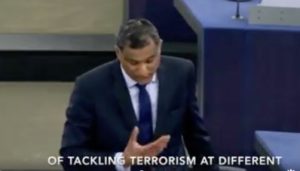The Return of Inflation: Examining the Role of the Bank of England
“Syed Kamall is a speaker at a special event hosted by Politeia on September 14, 2021, as they explore the pressing issue of rising inflation in the UK.
In light of the country’s emergence from the pandemic, the focus on the economy intensifies, prompting the question: “Is the Bank of England to blame for excessive money growth and potential above-target inflation?”
Professor Tim Congdon, renowned economist and Chairman of The Institute of International Monetary Research, along with Dr Gerard Lyons, Chief Economic Strategist at Netwealth, will join Kamall to discuss the implications of inflation on the Bank of England’s independence and the political fallout faced by the Boris Johnson government.
Read more about the event here.









 It has been nearly five months since the British people voted to leave the EU – in the referendum of
It has been nearly five months since the British people voted to leave the EU – in the referendum of 
 I no longer want to see an immigration system where we give preference to migration from the EU- the vast majority of whom happen to be white, while discriminating against non-EU passports.
I no longer want to see an immigration system where we give preference to migration from the EU- the vast majority of whom happen to be white, while discriminating against non-EU passports.


 Last Friday, 4th November, I organised and spoke at an event at City Hall, on a subject close to my heart. Crowdfunding could be an amazing opportunity for communities to work together to create the local area they want through raising funds in conjunction with local funding bodies. The event, ‘Crowdfunding in Public Finance – Direct Democracy in Action’, was founded on the notion if enough people got together, worked together, we could make a difference and change the way public finance is used.
Last Friday, 4th November, I organised and spoke at an event at City Hall, on a subject close to my heart. Crowdfunding could be an amazing opportunity for communities to work together to create the local area they want through raising funds in conjunction with local funding bodies. The event, ‘Crowdfunding in Public Finance – Direct Democracy in Action’, was founded on the notion if enough people got together, worked together, we could make a difference and change the way public finance is used.
 rs between them, financing projects and small loans to help entrepreneurs get their business
rs between them, financing projects and small loans to help entrepreneurs get their business es off the ground. What if we could take that model and place it in the public sector? Citizens and local government working together to fund and prioritise projects in their local area.
es off the ground. What if we could take that model and place it in the public sector? Citizens and local government working together to fund and prioritise projects in their local area. discussed and ultimately funded.
discussed and ultimately funded. I believe the movement has started and we need to explore this option further.
I believe the movement has started and we need to explore this option further.


